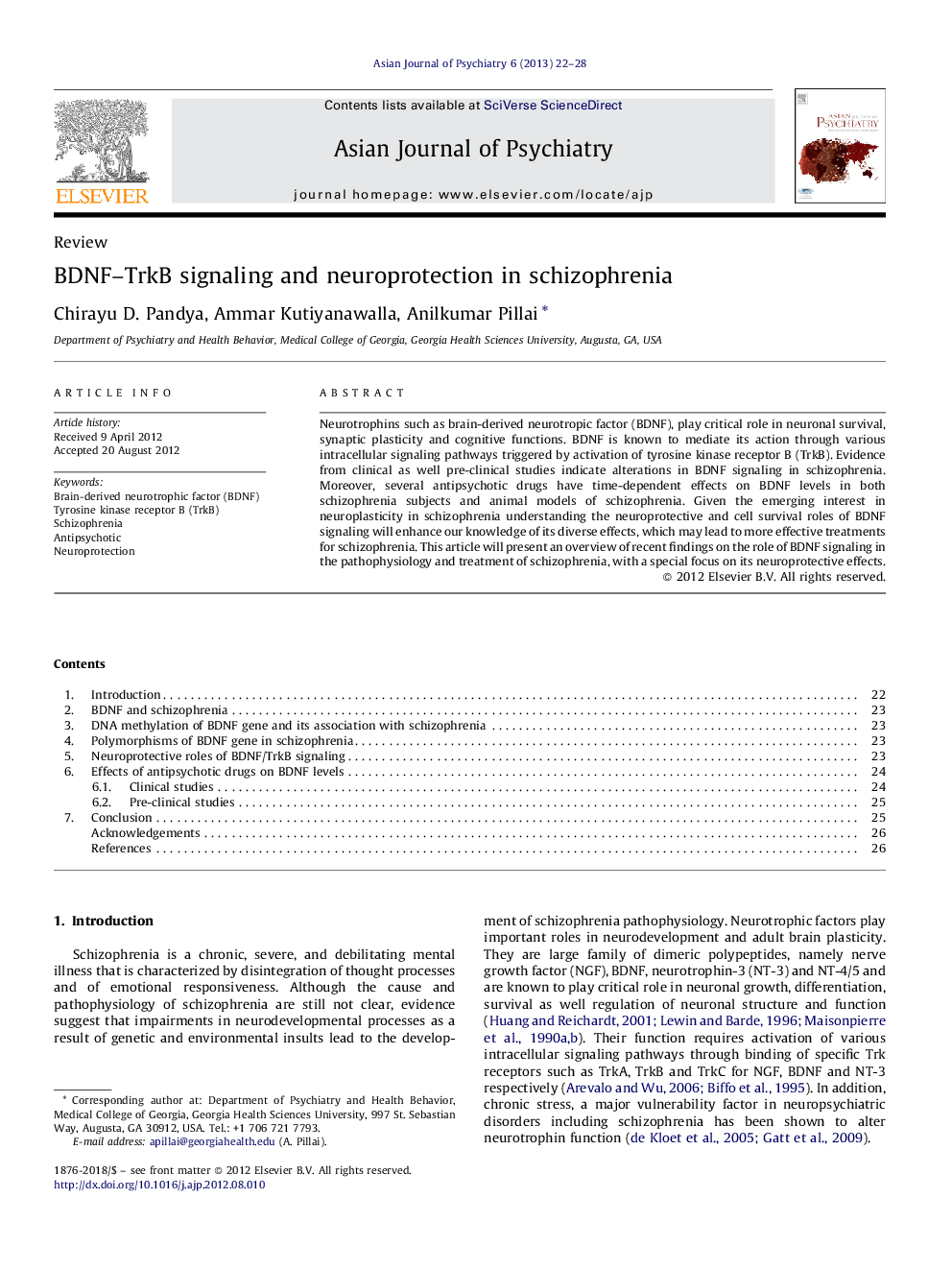| Article ID | Journal | Published Year | Pages | File Type |
|---|---|---|---|---|
| 315528 | Asian Journal of Psychiatry | 2013 | 7 Pages |
Neurotrophins such as brain-derived neurotropic factor (BDNF), play critical role in neuronal survival, synaptic plasticity and cognitive functions. BDNF is known to mediate its action through various intracellular signaling pathways triggered by activation of tyrosine kinase receptor B (TrkB). Evidence from clinical as well pre-clinical studies indicate alterations in BDNF signaling in schizophrenia. Moreover, several antipsychotic drugs have time-dependent effects on BDNF levels in both schizophrenia subjects and animal models of schizophrenia. Given the emerging interest in neuroplasticity in schizophrenia understanding the neuroprotective and cell survival roles of BDNF signaling will enhance our knowledge of its diverse effects, which may lead to more effective treatments for schizophrenia. This article will present an overview of recent findings on the role of BDNF signaling in the pathophysiology and treatment of schizophrenia, with a special focus on its neuroprotective effects.
► Overview of BDNF/TrkB signaling in the pathophysiology of schizophrenia. ► Pre-clinical and clinical studies indicate differential effects of antipsychotic drugs on BDNF/TrkB signaling in schizophrenia. ► Neuroprotective/neurotrophic compounds should be tried as adjunct to conventional medications in schizophrenia.
